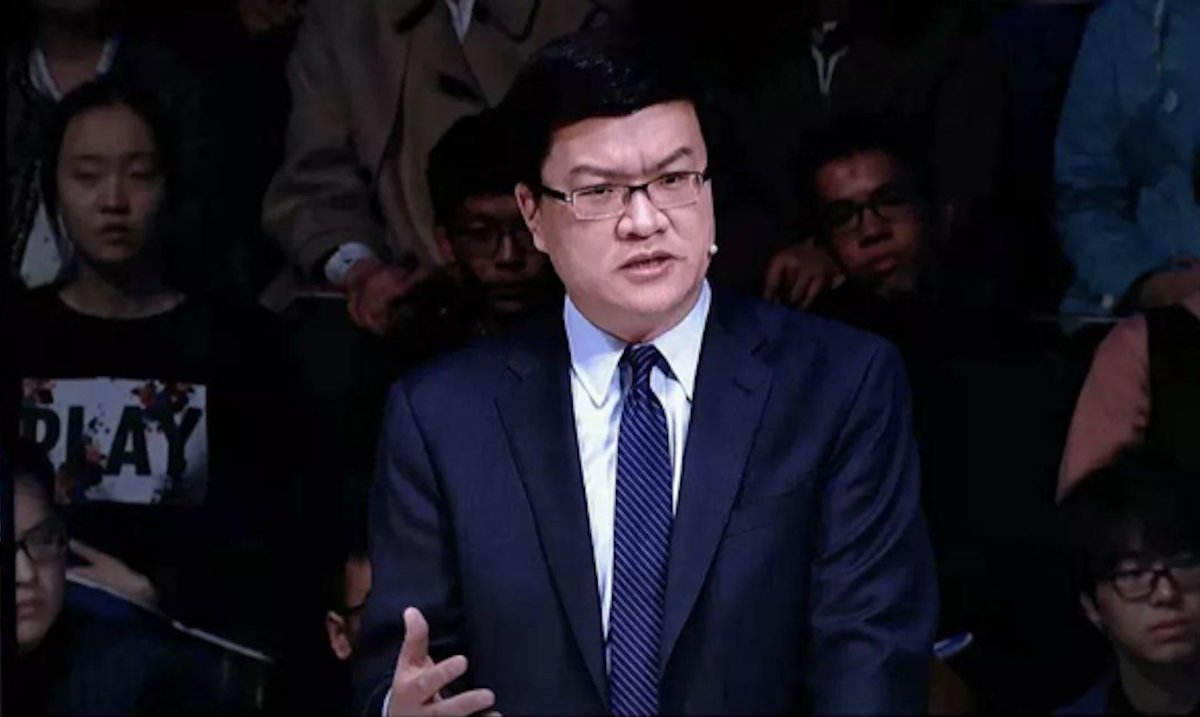
The effect of the #UkraineRussiaWar on the EU's quest for #StrategicAutonomy according to CICIR analyst Zhang Jian.
🔹CICIR is one of #China's most influential think tanks with links to the 🇨🇳 Ministry of State Security.
EXCERPTS 🧵
🔹CICIR is one of #China's most influential think tanks with links to the 🇨🇳 Ministry of State Security.
EXCERPTS 🧵

🪧 What is EU #StrategicAutonomy?
According to Zhang at least, it means the #EU “breaking away from US control and gaining the power to make strategic decisions on its own.”
According to Zhang at least, it means the #EU “breaking away from US control and gaining the power to make strategic decisions on its own.”
1⃣ “The crisis in #Ukraine has rendered the already unpromising prospects of the EU's strategic autonomy even bleaker.”
2⃣ “In the field of defence, the EU's aspiration [意愿] for strategic autonomy has clearly declined. Central and Eastern European countries, especially #Poland and the Baltic states, have become more dependent on the United States and #NATO."
3⃣ “Most of the increased military spending by European countries is still likely to go to the #US rather than European countries’ [own] military industries ... This is clearly not a good sign for [🇪🇺] strategic autonomy."
4⃣ "In the economic sphere, the EU's capacity for strategic autonomy is also trending downwards in the long term ... The economic disparity between the EU and the #USA is widening ... [and] the economic relationship between the US and Europe will become [increasingly] unequal.”
🪧 Zhang also highlights the EU’s loss of the 🇷🇺 market, the weakening of the euro and 🇪🇺's growing dependence on 🇺🇸 gas as further increasing the EU’s dependence on the US. He worries that rifts in the 🇫🇷-🇩🇪 relationship may also hamper the EU’s push towards strategic autonomy.
5⃣"At present, the voices of the CEE and Nordic countries in the EU have become significantly louder. Their political stance, such as being pro-US and anti-#Russia is becoming the mainstream in the #EuropeanUnion ->
-> As long as the crisis in #Ukraine continues and the confrontation between Europe and Russia remains unchanged, the hard-line policies of the CEE and Nordic countries will remain the prevailing EU policy towards #Russia."
6⃣ "The #UnitedStates and #NATO will therefore continue to guide the EU’s foreign and security policies, thus making it difficult for the EU's idea of strategic autonomy to become the mainstream.”
🪧 Zhang sees #France and #Germany as having a more pragmatic stance towards Russia but unable to impose their views due to “political correctness” (政治正确).
🔹What about the prospects of a "#Geopolitical EU"?
7⃣"It will be very difficult for the EU to commit [proper] resources and project power both globally and in the so-called ‘Indo-Pacific’ region as an independent force."
7⃣"It will be very difficult for the EU to commit [proper] resources and project power both globally and in the so-called ‘Indo-Pacific’ region as an independent force."
8⃣"Although the EU has launched its own #IndoPacific strategy, this increasingly important region will be largely relegated to being a bargaining chip [for the EU in its relationship] with the US."
🔹For more on this and other topics as viewed by Chinese scholars and think-tank analysts, subscribe for free:
sinification.substack.com/p/the-future-o…
sinification.substack.com/p/the-future-o…
• • •
Missing some Tweet in this thread? You can try to
force a refresh










